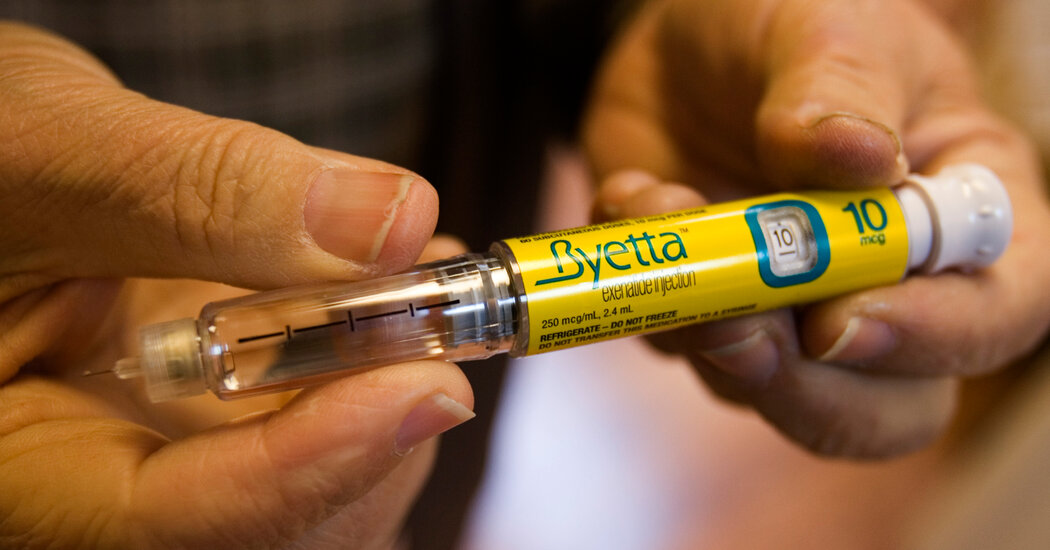
Ozempic-Like Drug Failed to Treat Parkinson’s Disease in Trial
- Health
- February 5, 2025
- No Comment
- 97
The idea was so tantalizing. Drugs in the GLP-1 class, which includes Wegovy and Ozempic, have proved miraculous in treating weight loss and other diseases. And some researchers hoped that the drugs could also help with some of the most difficult diseases to treat — those of the brain, like Parkinson’s.
But now, at least for Parkinson’s, that hope seems dimmed. A rigorous study that randomly assigned Parkinson’s patients to take exenatide, a relative of Ozempic, showed absolutely no benefit or slowing of the course of the degenerative disease after 96 weeks.
And there were no effect on patient symptoms, no effect on brain scans, no subgroup that showed any benefit. No matter how the researchers sliced the data the results were the same.
The study, published Tuesday in The Lancet, is bad news for the half million Americans who have been diagnosed with Parkinson’s disease. Symptoms include tremors, stiffness and difficulty with balance. Patients also may develop dementia. Treatments, including medications and deep brain stimulation, can help with symptoms. But no treatment has been shown to slow the disease’s progress.
“It’s hugely disappointing,” said Dr. Thomas Foltynie of University College London, who led the trial. “We were expecting we would come through and we would get a positive result.”
Parkinson’s experts shared his sentiment.
“This is a sobering moment,” said Dr. Michael S. Okun, a Parkinson’s disease expert at the University of Florida and the national medical adviser for the Parkinson’s Foundation. “This is a really well done study and it came up empty-handed.”
The finding may have implications for researchers who are asking if the newer GLP-1 drugs could help slow the course of Alzheimer’s or could prevent the disease.
The new study involved 194 people with Parkinson’s disease treated at six research hospitals in the U.K. The patients were randomly assigned to inject themselves once a week for 96 weeks with exenatide, a type 2 diabetes treatment made by AstraZeneca and sold under the brand name Byetta, or with a placebo. The trial was funded by Britain’s National Institute for Health and Care Research with support for substudies from the charity Cure Parkinson’s and the Van Andel Institute.
The drug is in the same class as Ozempic and Wegovy and, like them, lowers blood sugar levels. All are so-called GLP-1 receptor agonists, commonly called GLP-1s. Exenatide is not as powerful in eliciting weight loss as the newer drugs, but experts say there is no reason to believe that the more recent drugs would perform differently in studies of brain disease.
The results, researchers said, are especially disappointing because there were suggestions that GLP-1 drugs might help Parkinson’s patients.
GLP-1 drugs protected neurons from damage in laboratory studies and in a study with rats given a brain injury like that in Parkinson’s disease.
It began to seem that the results might also apply to patients.
“People started digging into claims databases,” Dr. Okun said, explaining that researchers had examined large databases showing drugs that people took and their diagnoses. The researchers asked if patients who had taken GLP-1s might be less likely to get Parkinson’s or, if they had it, would have a disease that progressed more slowly.
The results were promising.
They looked at epidemiological studies. They found that people with diabetes who took GLP-1s were less likely to have Parkinson’s.
Then two small studies suggested that exenatide might slow the progression of some Parkinson’s symptoms over a year’s time.
Continuing the hints of progress, a larger but still preliminary study, published last year in the New England Journal of Medicine, found that a GLP-1 that is no longer on the market — lixisenatide — appeared to slightly slow progress of the disease over a year.
Dr. Okun, at the time, said that the result was “nibbling at the edges of disease modification.”
“What we had last year was a one-year trial and a small signal,” said Dr. David Standaert, a Parkinson’s researcher at the University of Alabama at Birmingham. “What would happen if you went longer? Well, this is longer and there’s just not much here.”
The problem with studying GLP-1s in Parkinson’s disease, Dr. Standaert said, is that what exenatide is supposed to be doing in the brain is not clear.
“I wouldn’t do another study like this unless you learn what is the target,” Dr. Standaert said. “What is the biochemistry you are trying to change in the brain? How do these drugs work, anyway?”
#OzempicLike #Drug #Failed #Treat #Parkinsons #Disease #Trial









